Number 75
- Storming the palaces of the money-power
- The green mask is slipping
- Smart Cities: an attempted crime against humanity
- John Cowper Powys: an organic radical inspiration
- Acorninfo
1. Storming the palaces of the money-power

In previous Acorn reports about the growing resistance to the so-called Great Reset, we have mostly featured demonstrations.
In the pseudo-democratic phase of the system’s development, this symbolic means of showing discontent and solidarity was often effective in at least slowing down the ruling mafia’s relentless assaults on our freedom and well-being.
But since 2020 it has become increasingly clear that protests are no longer enough: those which challenge the dominant agenda are variously banned by the system’s faithful adminstrators, attacked by its hired thugs, ignored by its propaganda machine and smeared by its fake opposition.
As the global Thing pushes on with its war on the 99%, it is therefore no surprise that people everywhere are starting to rise up in a much more direct fashion.
Following widespread sabotage of 5G infrastructure in France and the truckers’ revolt in Canada the new spirit of feisty popular rebellion is spreading like wildfire across the world.
 As people’s real lives and livelihoods are threatened by the 2020s “transition” to techno-totalitarianism, they are finally standing up to the global money-power and its vile agenda.
As people’s real lives and livelihoods are threatened by the 2020s “transition” to techno-totalitarianism, they are finally standing up to the global money-power and its vile agenda.
Even the mainstream media couldn’t pretend nothing was happening when months of anti-government protests in Sri Lanka culminated in vast crowds storming the presidential palace.
Insurrectionaries also torched the Prime Minister’s residence and, significantly, broke through the front gate of Sri Lanka’s Central Bank. As one commentator said on Twitter: “They are finally figuring out who the real target of their anger should be”.
In Ecuador, indigenous movements have been engaged in ferocious street protests against the privatization policies of President Guillermo Lasso, a billionaire banker, as The Grayzone has been reporting via a series of videos, and Panama has seen days of strikes and protests against the rising financial cost of fuel, food and life in general.
Mozambique saw a vast protest in its capital Maputo against fuel price rises on July 8.

In Africa, the global mafia have also launched a vast land-grabbing exercise under the pretext of “conservation” and “protecting nature”.
As Aby L Sène explains, Western conservation agencies and their corporate and state allies want to “double the coverage of protected areas around the world by setting aside 30 percent of terrestrial cover for conservation by 2030”.
“Indigenous and human rights activists are sounding the alarm, comparing the 30×30 plan to the second Scramble for Africa, one that would further dispossess, militarize, and privatize the commons in Africa”.
Maasai tribes in Tanzania took up their traditional weapons in defiance of the violence of a system trying to “relocate” them from their ancestral homelands.

One community leader told Survival International: “Our government has decided to unleash the full power of the military to oust us from our land”.
In Europe, another land-grabbing exercise is being carried out in the name of environmentalism and “reducing nitrogen emissions”, with agriculture its target.
Along with the food shortages blamed on the war in Ukraine, this seems to be part of the broader Great Reset agenda identified in March this year by our astute guest contributor.
He warned that food shortages “will offer a major boon to the synthetic biology industry as the convergence of digital technologies with material science and biology will radically transform the agricultural sector and encourage the adoption of plant-based and lab-grown alternatives on a global scale”.
For Dutch farmers fighting for their land and livelihoods, their tractors have been their principal weapon.
Inspired by the Canadian truckers, they have been blocking city streets, motorways and airports and teaming up with German farmers to block border crossings.
They are warning: “The protests will continue. We have the support of millions of people. There will be actions that Holland has never seen before”.
Farmers in Italy have also been vociferous, declaring: “We are not slaves, we are farmers!”
Elsewhere the uprising has remained, more or less, within the realm of traditional protest.
In Punjab, India, protesting farmers managed to break through police lines.

In Albania, thousands took to the streets of the capital Tirana in protest at price hikes and government corruption.

While the Great Reset gang push war, slavery and total control, people everywhere are standing up for peace, freedom and real democracy.
There have been several recent protests in Zürich, Switzerland, a country which is home to many of the global mafia’s organisations.

And in Germany people continue to take to the streets, week after week, to voice their opposition to the new totalitarianism.
Since our last bulletin, they have been protesting in Berlin, Leipzig, Frankfurt, Pforzheim, Reutlingen, Düsseldorf, Mundsburg, Bielefeld, Ulm, Dresden, Bayreuth…
Meanwhile, some clued-up groups have been targeting specific Great Reset infrastructure with their protests.
In Gloucester, England, campaigners braved pouring rain to voice their opposition to a smart city project (see article 3 below on this subject).

In northern France, a “Technopolice caravan” has been visiting various towns to warn people of the threat of smart cities and surveillance society.
And protesters disguised as “chimpanzees of the future” disrupted a transhumanist event in Lille, as captured on this video.
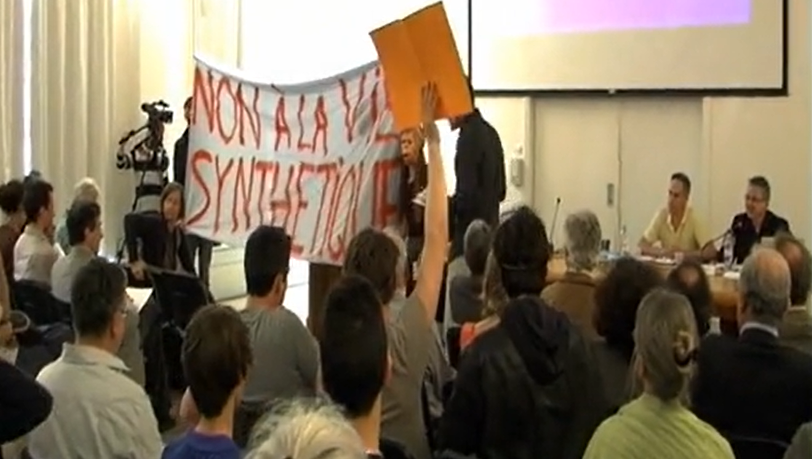
We’re not pretending this battle is going to be an easy one for us dissidents.
The global mafia will keep on pushing its evil agenda, at all costs, in spite of our resistance.
But we will keep on resisting, at all costs, in spite of their repression!
And The Acorn is confident that, against the forces of darkness and slavery, it will be humanity, freedom and life itself which will ultimately triumph!

For many decades now, the global mafia have being hiding behind the pretence that they are “environmentally friendly”.
Their initial clumsy PR greenwashing, designed to see off growing anger at their polluting activities, has evolved into a whole industry of deceit.
We are supposed to believe that the same interests who have been merrily profiting from the destruction of nature for hundreds of years are now going to “save” it.
“Sustainable development” has become our rulers’ ubiquitous watchword, a worthy-sounding phrase which masks the reality that it is development (of wealth and thus power) that they want to sustain, rather than the living earth.
The term has become central to the structures of the brave new world of the Great Reset in the shape of the United Nations Sustainable Development Goals.
And every business that matters boasts its commitment to ESG (“Environmental, Social, and Governance), an acronym which dates back a UN-commissioned report in 2004.
ESG is described by journalist Edward Slavsquat as a “massive scam”. He adds: “The obnoxious acronym is almost interchangeable with Schwab’s ‘stakeholder capitalism’ and is used by corporations to rope in ‘socially conscious investors’ and signal their loyalty to the Sustainable Development Revolution”.
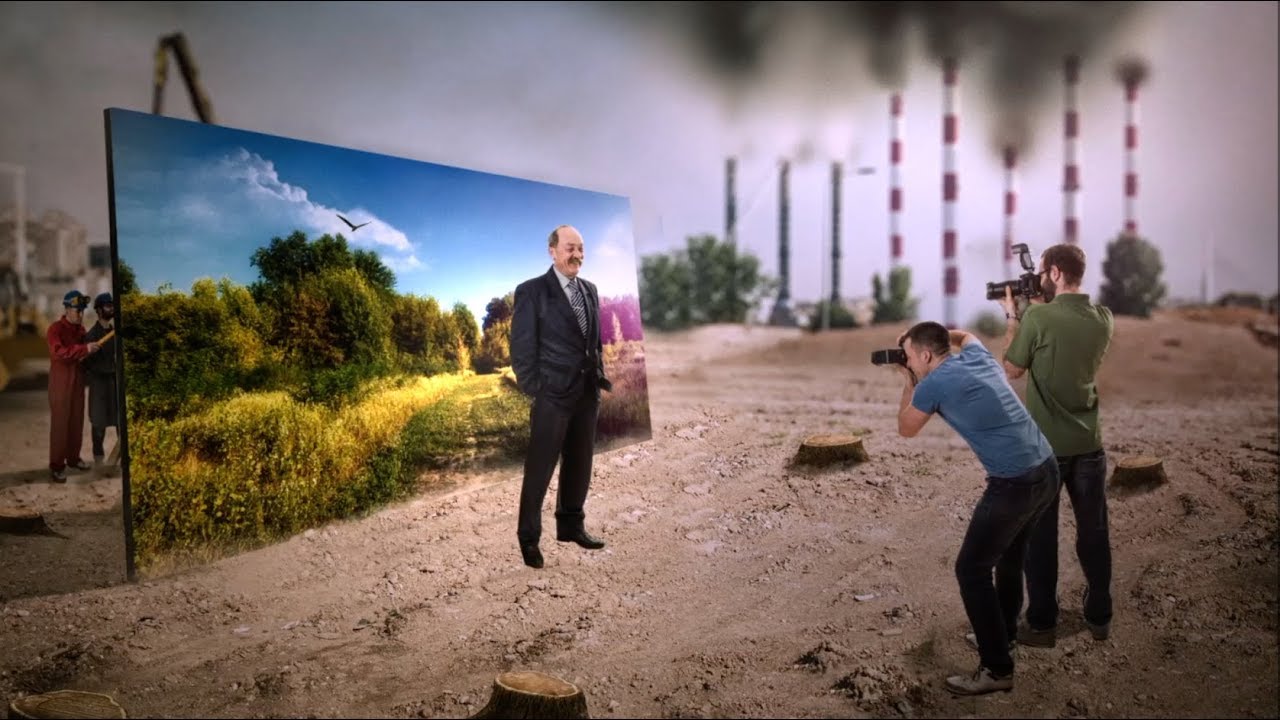
But now, it seems, the glory days of ESG may be coming to an end.
The trouble is that some folk have been taking it too seriously and imagining that the window-dressing of environmental and social responsibility was really going to stop big business from making profits in any way it can.
A report from The Financial Times explains: “ESG’s critics say some companies and investors are using the loosely defined term to ‘greenwash’, or make unrealistic or misleading claims, especially about their environmental credentials.
“Those criticisms came into sharp focus on May 31, when German police raided the offices of asset manager DWS Group and its majority owner, Deutsche Bank AG, as part of a probe into allegations of greenwashing.
“It was the first time that an asset manager had been raided in an ESG investigation and signals a moment of reckoning for the industry”.
The article notes that the United States Securities and Exchange Commission recently levelled a US$1.5-million fine at the fund management arm of the Bank of New York Mellon Corp for allegedly providing misleading information on ESG investments.

This, it says “could herald a wider regulatory crackdown on ESG, which some have warned might be the next mis-selling scandal, similar to those in payment protection insurance, endowment mortgages or diesel cars”.
The “climate solutions” bandwagon is a cornerstone of the global mafia’s agenda, but the gap between fine words and reality is becoming wider by the day.
With the boom in oil and gas profits sparked by the conflict in UKraine, giant investments funds which had been withdrawing from fossil fuels under the ESG banner are now thinking again.

Says The Financial Times: “This dilemma presented by rising energy prices was evident in separate statements in May by BlackRock Inc. and Vanguard Group Inc., the world’s two largest asset managers, who between them have almost US$18 trillion in assets under management.
“Vanguard said it had refused to stop new investments in fossil-fuel projects and to end its support for coal, oil and gas production. Meanwhile, BlackRock announced it was likely to vote against most shareholder resolutions brought by climate lobbyists pursuing a ban on new oil and gas production.
“The warning appeared to mark a dramatic change in stance by the world’s largest asset manager, whose chief executive, Larry Fink, has been beating the drum for sustainability for years and presented the group as playing a central role in financing the energy transition.
“Activists worry that BlackRock’s move could grant permission for other investors to loosen their grip on pushing companies to cut carbon emissions. Critics say that it reflects how, amid surging oil prices following Russia’s invasion of Ukraine, fossil-fuel investments are simply too lucrative for investors to ignore”.
Also too lucrative to ignore are the profits to be made from selling weapons to those involved in that same war.
And so the money-men are now thinking about re-writing their own ESG definitions so that they can extract maximum “value” from death, destruction and misery.
Says the FT: “The war in Ukraine has accelerated a rearmament policy in Europe and defence companies have outperformed global markets by the greatest margin in almost a decade.
“Some believe that defence companies ought to now be classified as sustainable”.

Meanwhile, in an instructive report, Slavsquat confirms that “yes, Russia is part of the ‘sustainable development’ revolution”.
He reveals that the business program of the St. Petersburg International Economic Forum included “The Importance of the Climate Agenda in Key Eurasian Economies”.
One of the listed panelists was Tatiana Zavyalova of Sberbank, which is the World Economic Forum’s climate change missionary for Russia.
 In Russia, as elsewhere, this apparent concern for the climate and “sustainability” is, of course, utterly fake.
In Russia, as elsewhere, this apparent concern for the climate and “sustainability” is, of course, utterly fake.
This much was made very clear, although no doubt unintentionally, by a recent editorial on the Information Clearing House site.
The author is greatly enthused by the prospect of Western-based capitalists being eclipsed by their equivalents in Russia and China.
He writes: “The old U.S.-led order has to go, and it will go precisely because it is no longer sustainable as far as the rest of humanity is concerned”.
Ah, so the new gang will be “sustainable”, presumably?
Not quite! The author writes: “Russia’s vast natural resources, primarily in the sphere of energy, will be directed towards Eurasian development and in doing so find ample reward”.
He says that “it will take time to build the necessary infrastructure of gas and oil pipelines” in Eurasia but that the end result will be “greater economic development”.
Very sustainable, all that!
In welcoming “the transition to a new global order” the author echoes Klaus Schwab’s sinister rhetoric.
It is important to look beyond all the smoke and mirrors of novelty to see the toxic reality beyond.
Development is still destruction even when it is called “sustainable”. Bankers are still bankers, whether they have offices in London, New York or Moscow. A “multipolar world order” is still a world order and still very much the enemy of humankind.
3. Smart cities: an attempted crime against humanity

The totalitarian agenda behind Smart Cities has been revealed in a brochure issued by the United Nations Human Settlements Programme (UN-Habitat).
The title of the 80-page publication is, in itself, disturbing: “Centering People in Smart Cities: A playbook for local and regional governments”.
Centering people rather than people centering themselves? We see here that the UN regards people as objects, which it owns and can place where it pleases, rather than as free agents who decide themselves where and how to spend their lives.
What does it actually imply to be “centered” by the United Nations and the local and regional governments that blindly follow its orders?
Do they mean “concentrate”, perhaps? Concentrating people? Imprisoning them? Forcing them to live confined in a place where they would not have chosen to have lived, had they been free agents?
And the term “smart” is a dishonest one, because the intelligence it implies is of the artificial kind and is not required of the people involved, who are instead expected to relinquish any vestige of control over their own lives, homes and even bodies by allowing digital algorithms to take over the role previously played by their brains and their hearts.
Maybe the title of the brochure could be translated, in plain and truthful English, as “Imprisoning People in Digital Concentration Camps”?
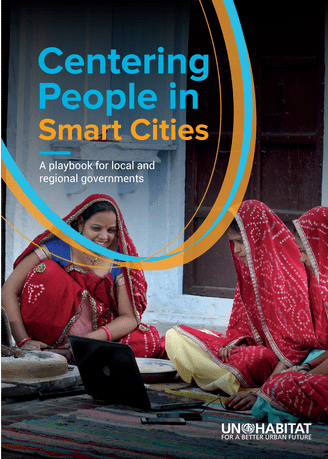 If that sounds like an alarmist exaggeration, please consider the actual content of the brochure.
If that sounds like an alarmist exaggeration, please consider the actual content of the brochure.
It is repeatedly made clear that there is an overarching agenda behind the smart cities project.
This is described on page 17 as “leveraging digital transformation for sustainable and equitable
outcomes”.
The language is designed to deceive. “Sustainable”, here, has got nothing to do with being environmentally-friendly but indicates ongoing profitability. And “equitable” does not mean “fair” but refers instead to “equity” in the sense of financial assets.
When we, again, translate the misleading verbiage, we understand that smart cities are about creating huge long-term financial profits for those promoting and investing in them.
The same page describes a 2019 UN resolution stating that “digital technologies have the potential to facilitate efforts to accelerate human progress, and ensure that no one is left behind in the achievement of the Sustainable Development Goals”.
“Accelerating human progress”, from the forked tongue of the global mafia, means nothing more than accelerating its control and profit by means of technological tools, particularly via “new streams of data that feed intelligence platforms” (page 13).
No one being left behind (often termed “inclusivity”) means that they want nobody to escape their net of digital global exploitation.
But our self-appointed rulers came up against a couple of serious problems.
 Firstly, there are a lot of people in the world who have not yet been turned into smart-phone zombies.
Firstly, there are a lot of people in the world who have not yet been turned into smart-phone zombies.
On page 6 the authors bemoan the fact that “so many remain outside of the digital world” and on page 9 they complain that “3.7 billion people were offline in 2019”.
So how were they going to address this obstacle to their designs in 2020?
In their own words, on page 8: “The COVID-19 pandemic introduced even greater urgency for local and national governments alike to bridge the digital divide”.
The second big problem was that people were wising up to their scheming and refusing to go along with it – even more so now, ironically enough, thanks to their blatant use of Covid to push their project!
They admit on page 14: “Emerging public awareness of surveillance technology and bias in algorithmic decision-making, particularly in the wake of COVID-19, has also challenged the traditional smart city framework”.
The answer, of course, was to ramp up the propaganda and invent yet another weasel word aimed at hiding the vile reality behind what they are trying to do.
From now on, all the talk is evidently going to be about “people-centered smart cities”.
Remembering the title of the brochure, we can appreciate the depths to which their language-twisting deceit has sunk.
They think they can get away with calling smart cities “people-centered” not because they will be centered around people and their needs, but because they are about “centering”, concentrating, people within their virtual prison walls.
This criminal inversion of the truth continues, still on page 14, with the claim that these smart cities will “leverage data, technology and services for common good”.
Common good? The reality is revealed on page 21, with its talk of “public private partnership”, “achieving economic development goals” and “prosperity and growth”.
The authors had already stated on page 13 that “estimates of global spending on the smart cities market ranges from USD 820.7 billion to USD 2.5 trillion by 2026”.
We can be sure that the global development mafia’s sustainable goals of prosperity and growth will only have been achieved if the return made from such vast investments is a considerable one!
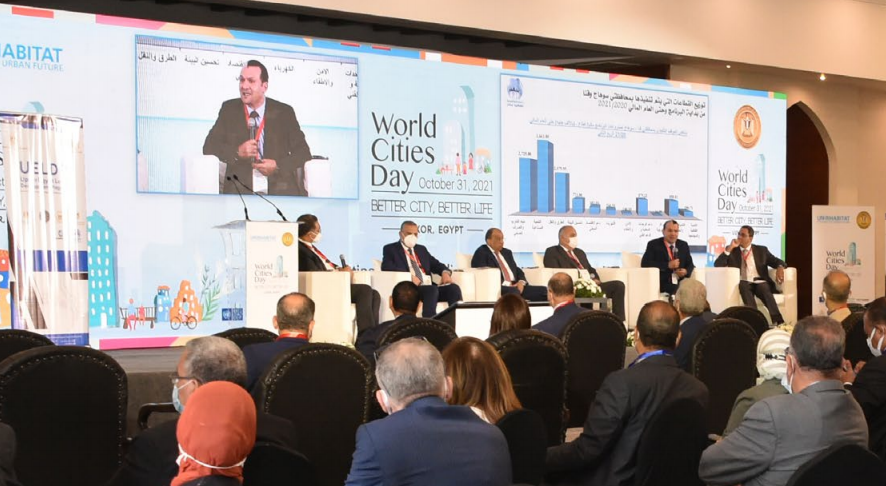
And the final nail which the brochure itself hammers into the coffin of its project’s plausibility comes on that same page, in the form of its account of the origins of the “smart city” brand.
It admits: “It entered mainstream consciousness when IBM initiated the ‘Smarter Cities Challenge’ in 2010. Under the Smarter Cities Challenge, IBM targeted technology offerings to local governments and developers of urban infrastructure, proposing that computational solutions would serve to optimise city
infrastructure”.
IBM has gone down in history for its role in providing “computational solutions” for Adolf Hitler’s murderous “public private partnership” in Germany in the 1930s and 1940s.

As this article reminds us, IBM’s “streams of data” enabled the regime to innovate inclusive and sustainable people-centered hubs at the likes of Auschwitz and Belsen.
“The software company’s punched-card technology helped the Nazis carry out the genocide of millions”.
4. John Cowper Powys: an organic radical inspiration
The latest in our series of profiles from the orgrad website.

“Money and machines between them dominate the civilized world”
John Cowper Powys (1872-1963) was a novelist, poet and philosopher who called on humans to reconnect with nature in the face of the machine-world of industrial capitalism.
A convert to anarchism, he strongly supported the anarchist side in the Spanish Revolution and corresponded with Emma Goldman, whom he referred to as his “chief Political Philosopher”. (1)
Other orgrad influences included Johann Wolfgang von Goethe, (2) William Blake, (3) Georg Hegel, (4) Plotinus, (5) John Ruskin, (6) Carl Jung, (7) and Paracelsus. (8)
Powys wrote of having forged his own worldview in reaction to capitalist society: “I would convert my malicious hatred of the commercial hurly-burly into a passionate eulogy of the saints and mystics of the past”. (9)
He professed to having a mania “for every sort of metaphysical system”, (10) wrote of “the organic link that binds together the human generations” (11) and, like so many orgrad thinkers, thirsted for a current of thinking “that, in its historic continuity, links the religion of the cave-man with the religion of the philosopher”. (12)
Powys often expressed his disdain for what he termed “the various mechanical inventions of our western world”. (13)
He wrote: “There is no escape from machinery and modern inventions; no escape from city-vulgarity and money-power, no escape from the dictatorship of the uncultured”. (14)
 “Money and machines between them dominate the civilized world. Between them, the power of money and the power of the machine have distracted the minds of our western nations from those eternal aspects of life and nature the contemplation of which engenders all noble and subtle thoughts”. (15)
“Money and machines between them dominate the civilized world. Between them, the power of money and the power of the machine have distracted the minds of our western nations from those eternal aspects of life and nature the contemplation of which engenders all noble and subtle thoughts”. (15)
His critique of modernity went further than a dislike for the physical mechanisms of its society and embraced its cultural essence.
In common with the likes of Ruskin, William Morris, Herbert Read and Henry Miller, Powys felt a profound aesthetic loathing for the base culture of contemporary commercial society and the “crudest superficiality” (16) which prevailed there.
He wrote in The Meaning of Culture, first published in 1929, that if you looked and listened for a moment in the modern world you would be sure to find something “that is so repulsive to you, so poisonous to your nature, so contrary to all your ideas of what beauty is, and what truth is, and what noble simplicity is, that it will scarcely bear thinking on”. (17)
 In the face of all the “vulgar sensationalism” (18) and “commercialized opinion” (19) with which we were continually besieged, Powys said we had to create our own personal philosophy, build our own individual culture to uphold the values which were important to us.
In the face of all the “vulgar sensationalism” (18) and “commercialized opinion” (19) with which we were continually besieged, Powys said we had to create our own personal philosophy, build our own individual culture to uphold the values which were important to us.
And from where could we source this philosophy? Ultimately it had to come from within each one of us.
When you considered a cultured person’s individual philosophy “you feel that this is what he has secretly and profoundly lived by for many a long year”, (20) said Powys. “That this personal philosophy already exists before it is brought into conscious articulation cannot be doubted”. (21)
This authentic personal philosophy was not some kind of intellectual accessory that could be worn in public on special occasions and then discarded for the rest of the time.
It had to be embedded within one’s very personality and existence. “To philosophize is not to read philosophy, it is to feel philosophy”, (22) insisted Powys. “With a cultured man there is no gap or lacuna between his opinion and his life. Both are dominated by the same organic, inevitable fatality. They are what he is”. (23)
An admirer of the nature-sourced philosophy of Chuang Tzu, Powys declared in his autobiography: “A Taoist is what I really am”. (24)
Elsewhere he stressed that happiness and self-fulfilment could be drawn from the pure physical joy of existing.
We should draw inspiration from “simply the fact of being alive, of being able to go walking about, touching things with our hands, blinking into the sun, feeling the wind on our face, the ground under our feet!” (25)
 Looking ahead from 1934 and seemingly glimpsing the predicament we face in the 2020s, Powys wrote: “Suppose machinery does extend its sway, suppose science in the hand of minority-dictators does more and more dominate us, suppose the great battle of the future, with its own particular ‘good and evil’, comes to be the struggle of the individual to be himself against the struggle of society to prevent him being himself, what we shall have to do will only be what the saints, lovers, artists, mystics have always done, namely sink into ourselves and into Nature and find our pleasure in the most simple, stripped, austere and meagre sensations”. (26)
Looking ahead from 1934 and seemingly glimpsing the predicament we face in the 2020s, Powys wrote: “Suppose machinery does extend its sway, suppose science in the hand of minority-dictators does more and more dominate us, suppose the great battle of the future, with its own particular ‘good and evil’, comes to be the struggle of the individual to be himself against the struggle of society to prevent him being himself, what we shall have to do will only be what the saints, lovers, artists, mystics have always done, namely sink into ourselves and into Nature and find our pleasure in the most simple, stripped, austere and meagre sensations”. (26)
He added: “Quite apart from idealism, quite apart from virtue, it is the merest life-wisdom, drawn from the ancient earth, to place one’s pride, one’s self-valuing, one’s life-illusion, where it cannot be knocked over – in other words, sturdily, simply, childishly, on the ground! Here lies the whole secret of being happy. Ambition is the grand enemy of all peace”. (27)
Thus instead of allowing our souls to be stifled and moulded by the fads and dogmas of contemporary civilization, we should be guided and inspired by “earth wisdom”. (28)
This knowledge did not come simply from the reality of our own physical existences, but arose from the wider whole of which we had always been part, “grounding itself upon the eternal elements of Nature and human nature”. (29)
Powys wrote: “Birth and death, food and fire, sleep and waking, the motions of the winds, the cycles of the stars, the budding and falling of the leaves, the ebbing and flowing of the tides – all these things have, for thousands of years, created an accumulated tradition of human feeling”. (30)
It was the poetry of the real and the living, “the whole turbid stream of Nature, in its wild oceanic ensemble” (31) that was the authentic source of our spiritual well-being and which had always informed what Powys termed “Natural religion”.
 He explained: “By Natural religion I mean that spiritual legacy of pantheistic feelings which runs like an underground river – every now and then spouting forth in an up-welling spring. (32)
He explained: “By Natural religion I mean that spiritual legacy of pantheistic feelings which runs like an underground river – every now and then spouting forth in an up-welling spring. (32)
“This great tradition of natural religion is very old. Probably in its origin it was associated with the Orphic and Eleusinian Mysteries”. (33)
Powys refered to Jean-Jacques Rousseau’s view “that the meaning of culture is nothing less than to restore, by means of our imaginative reason, that secret harmony with Nature which beasts and birds and plants possess, but which our civilization has done so much to eradicate from human feeling”. (34)
He continued: “As a matter of fact there are many points of striking resemblance between the undertones of Rousseau’s culture and those of Goethe’s. From the writings of these Nature-lovers the position could be defended that the beginning of all real self-development lies in a certain magical rapport, bringing indescribable happiness, between the solitary ego and ‘all that we behold from this green earth’”. (35)
Powys suggested that, in order to bypass the falsity of society, we needed to directly and deliberately reconnect with nature whenever we could.
He wrote: “By concentrating on the purer elements of this environment, upon the earth, the sky and the sun, and upon such stray presence of earth-life as fortune may have offered; by surrounding these things with the vague atmosphere of former magical sensations which they can be compelled to restore, the mind can purge itself of the troublesome pressure of litter and debris, purge itself of the evil taste of anxiety”. (36)
We should approach nature with the holistic eye of Goethe rather than the merely scientific eye of Newton, he said. We should not try to analyse or explain nature, but to feel it. (37)
“I pray to idols and fetishes and images, to sticks and stones, to the Sun and the Moon and the Earth”, (38) he confessed, asking himself whether it was possible “that at certain particularly sacramental moments in your life you are permitted to enter into some mysterious conscious relation with the spirit of the earth itself?” (39)
Powys explained that, for him, what we call dead or inanimate matter “is in reality the organic body of some sort of living being“, (40) an insight which had provided his “grand clue to the essential truth of all the ancient mythologies”. (41)
“Human sensations are Nature’s self-expression. They are the earth’s awareness of herself. They are like the blossoming of flowers – the only way in which the rooted life of the organism can realize itself and be itself”. (42)

There are echoes of the nature mysticism of Richard Jefferies in the way he suggested bonding with the natural world at hand and, through that, with the eternity of the universe.
Powys wrote: “What matters is that with the calmest and most earth-bound manner you should concentrate your thought upon the whole rondure of the turning globe as it transports all its living burden through measureless space-time, of which burden, just now, this thistle-head, these ash-roots, this tarnished dock-leaf, together with your own flesh-covered human skeleton, are transitory fragments…
“What you will come to feel is a singular identity between your own inner being and the inner being of these things… There is indeed a strange and profound satisfaction in feeling this consciousness of identity between your own transitory life and the transitory life of other earth-products, whether organic or inorganic.
“Concentrating upon such identity, there may even sometimes steal over the mind a ‘sense of something far more deeply infused’, the idea of a lastingness in fact of some essence in them and in yourself, independent of the annihilation to which all alike are moving”. (43)
The vital energy of nature which lay behind this gnosis was also the vital energy which led human beings to express and insist upon their own feelings, to uphold their own nature-sourced values in the face of hostility or indifference.
Like Otto Gross, Powys thought that simply adapting to the society around us, accepting its morals and standards, amounted to existential failure.
He wrote: “That tender compromise called resignation is only an eloquent name for the dying down, the wearing thin, of the vital impulse in us”. (44)
With his belief in the vitality of the individual will, necessarily sourced from a collective whole, Powys was clearly closer to anarchism than to the state communism with which he initially sympathised.
 In 1939 he wrote to the poet Huw Menai: “I’ve long been a convert to Anarchism as the only real liberty, & without question the system of the Future”. (45)
In 1939 he wrote to the poet Huw Menai: “I’ve long been a convert to Anarchism as the only real liberty, & without question the system of the Future”. (45)
This political affiliation had been strengthened by his support for the anarchists in the Spanish Revolution and several years of correspondence with Goldman.
In the late 1930s Powys contributed, alongside the likes of Read, to the anarchist journals Spain and the World and Revolt. (46)
David Goodway explains that his anarchism shines clearly throughout Powys’ writing: “‘Anarchy, ‘anarchist’, ‘anarchical’, ‘anarchistic’ become for Powys terms of overwhelming approbation – in striking contrast to their conventional pejorative usages.
“For example: ‘the divine anarchy of the soul’; ‘the power of the lonely, equal, anarchistic individual’; ‘the real, living, mysterious, anarchical Multiverse’; ‘the chaotic, pluralistic, anarchistic Shakespeare’: ‘beautiful Chance and beautiful Chaos and beautiful Anarchy’”. (47)
In his 1951 work Porius: A Romance of the Dark Ages, described by Goodway as “his most anarchist novel”, Powys writes of a Golden Age which could be seen as “the consummation of, as the ideal embedded within, his philosophical anarchism”. (48)
Powysland, a website devoted to Powys, describes him as “English literature’s most enthralling, addictive and infuriating writer – the best novelist that many readers have never heard of”.
It adds that, more than 50 years after his death, “his philosophy of defiance of the pressures of the modern world is more important than ever”. (49)
Link: Powys: Organic Radical?

1. David Goodway, Anarchist Seeds Beneath the Snow: Left-libertarian Thought and British Writers from William Morris to Colin Ward (Oakland: PM Press, 2012), p. 152.
2. John Cowper Powys, Autobiography (London; Pan Books, 1982) p. 294.
3. Powys, Autobiography, p. 377.
4. Powys, Autobiography, p. 478.
5. Powys, Autobiography, p. 285.
6. Ibid.
7. Powys, Autobiography, p. 275.
8. Powys, Autobiography, p. 631.
9. Powys, Autobiography, p. 540.
10. Powys, Autobiography, p. 478.
11. Powys, Autobiography, p. 436.
12. Powys, Autobiography, p. 539.
13. John Cowper Powys, The Meaning of Culture (London: Jonathan Cape, 1930), p. 297.
14. Powys, The Meaning of Culture, p. 290.
15. Powys, The Meaning of Culture, p. 300.
16. Powys, The Meaning of Culture, pp. 230-31.
17. Powys, The Meaning of Culture, pp. 309-10.
18. Powys, The Meaning of Culture, p. 149.
19. Powys, The Meaning of Culture, p. 150.
20. Powys, The Meaning of Culture, p. 18.
21. Powys, The Meaning of Culture, p. 20.
22. Powys, The Meaning of Culture, p. 22.
23. Powys, The Meaning of Culture, p. 19.
24. Powys, Autobiography, p. 642.
25. Powys, The Meaning of Culture, p. 139.
26. Powys, Autobiography, p. 623.
27. Powys, The Meaning of Culture, p. 140.
28. Powys, The Meaning of Culture, p. 286.
29. Powys, The Meaning of Culture, p. 317.
30. Powys, The Meaning of Culture, p. 73.
31. Powys, The Meaning of Culture, p. 72.
32. Powys, The Meaning of Culture, p. 102.
33. Powys, The Meaning of Culture, p. 103.
34. Powys, The Meaning of Culture, p. 130.
35. Ibid.
36. Powys, The Meaning of Culture, p. 131.
37. Powys, The Meaning of Culture, p. 194.
38. Powys, Autobiography, p. 323.
39. Powys, Autobiography, p. 297.
40. Powys, Autobiography, p. 214.
41. Ibid.
42. Powys, Autobiography, p. 238.
43. Powys, The Meaning of Culture, pp. 185-86.
44. Powys, The Meaning of Culture, p. 27.
45. Goodway, p. 153.
46. George Woodcock, Anarchism: A History of Libertarian Ideas and Movements (Harmondsworth: Penguin, 1979) p. 428.
47. Goodway, p. 156.
48. Goodway, p. 173.
49. http://powysland.co.uk/
The global mafia have a name for the fake digital reality in which they aim to imprison and exploit us: the metaverse. And Klaus Schwab’s WEF is “on track to be at the center of defining what the future metaverse will look like”, reports Reclaim the Net. The announcement in fact came from Nick Clegg, the widely-despised Liberal Democrat sell-out politician now Facebook (Meta) President of Global Affairs.

* * *
“Bono has become an almost ubiquitous face in the halls of power, being invited to speak at elite events including the Munich Security Conference, the G8 summit, World Bank and the WEF. Bono is not a threat to empire; he is its smiling, singing face”. Investigative journalist Alan Macleod turns the spotlight on the Irish rock star turned cheerleader for the system.

* * *
“Rural poverty is reproduced not because people do not work hard, but because of the dispossession of rural workers from land ownership”. This is the message of a timely analysis from Vijay of Tricontinental: Institute for Social Research in South Africa, who concludes: “Loo ngumhlaba wookhokho bethu! This is the land of our ancestors! It is about time that those who work the land get to own the land”.

* * *
“A vast network of corporations and institutions works together to push the world into accepting synthetic food… From the perspective of appreciating nature as a perfect system, there really is nothing more profane than poisoning manure and replacing animal protein with lab grown meat”. So warns The Feisty Adélie in a well-researched article entitled “Good Manure, Fake Meat and the GPPP of Food”.

* * *
Did you know that a court ruled in 1772 that no person in England, and by extension the rest of the United Kingdom, could be held in slavery? Comments blogger Warwick Vegan: “As Agenda 2030 seeks to impose an updated form of slavery, pharmaceutical and technocratic, in which bodily sovereignty has been removed, it is worth bearing in mind that court judgement of two and half centuries ago”.
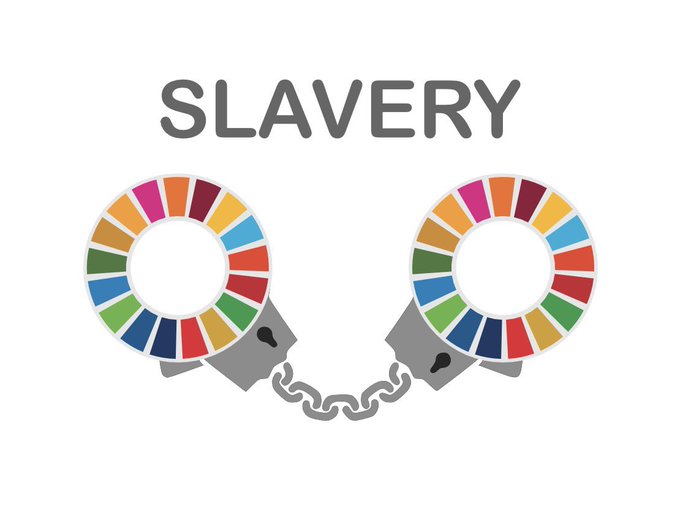
* * *
In a scathing condemnation of the UK’s prison system, Craig Murray writes about man held in jail for 11 months awaiting trial for a petty offence that resulted in a £75 fine. “He was one of Edinburgh’s under class, and nobody cares”.

* * *
In this debased contemporary world, everything is a potential source of speculative profit, even people’s bodily health. Intelligent Medicine Exchange (IMX) in the USA has announced its plans to launch the first financial exchange focused on “the health care economy”. It says: “Health care represents nearly 20% of the U.S. gross domestic product (GDP), but there is currently no dedicated derivatives market to hedge risk”.

* * *
A fascinating in-depth discussion on “Cold War 2.0” was recently hosted by OffGuardian, featuring Whitney Webb, Catherine Austin Fitts, Kit Knightly, Patrick Wood and Iain Davis.

* * *
Using the excuse of the Ukraine-Russia conflict, the shale gas industry and its little helpers are calling for the moratorium on fracking to be lifted in England. But Drill or Drop reports that a new academic study shows very little support for fracking, that people still don’t want earthquakes when they are cunningly relabelled “micro-seismicity” and that “just 12% of people reported trusting the shale gas industry a fair amount or a great deal”.

* * *
Shouldn’t the after-effects of vaccination be discussed before? A well-referenced A5 information leaflet resource has been designed by the Informed Parent site to empower people to ask important questions about Covid 19 injections.
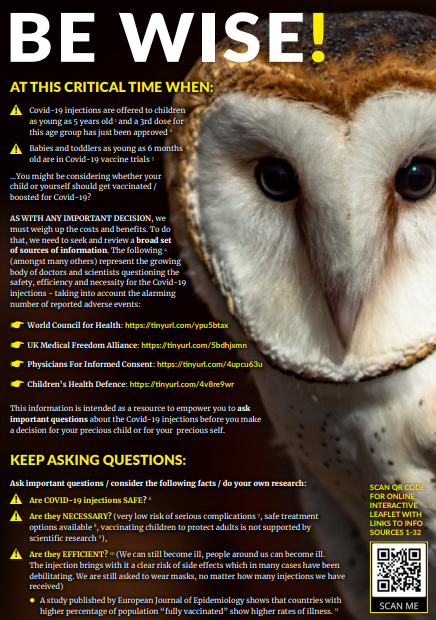
* * *
Battleground Melbourne is an excellent documentary on the totalitarian nightmare unleashed on the Australian city under the pretext of “Covid”. Australia, like New Zealand and Canada, is of course part of The Commonwealth, whose odious and hypocritical activities we recently exposed…
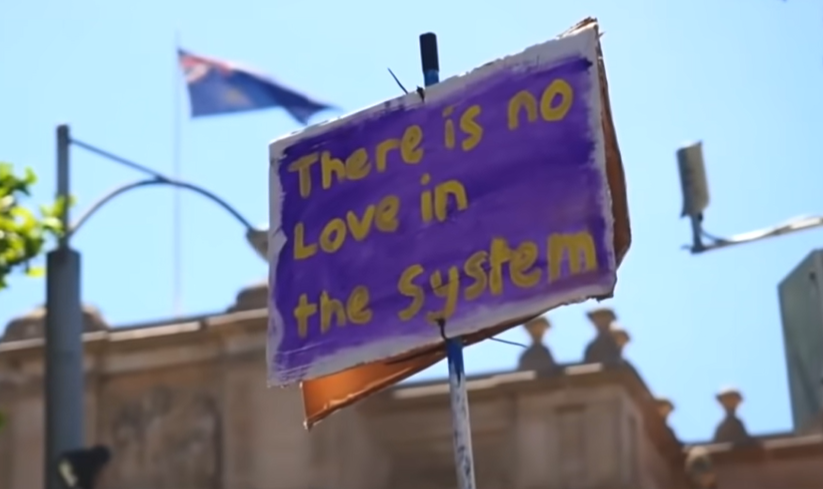
* * *
“Economic and political control can never be complete or effective without mental control. To control a people’s culture is to control their tools of self-definition in relationship to others”. Ngugi wa Thiong’o
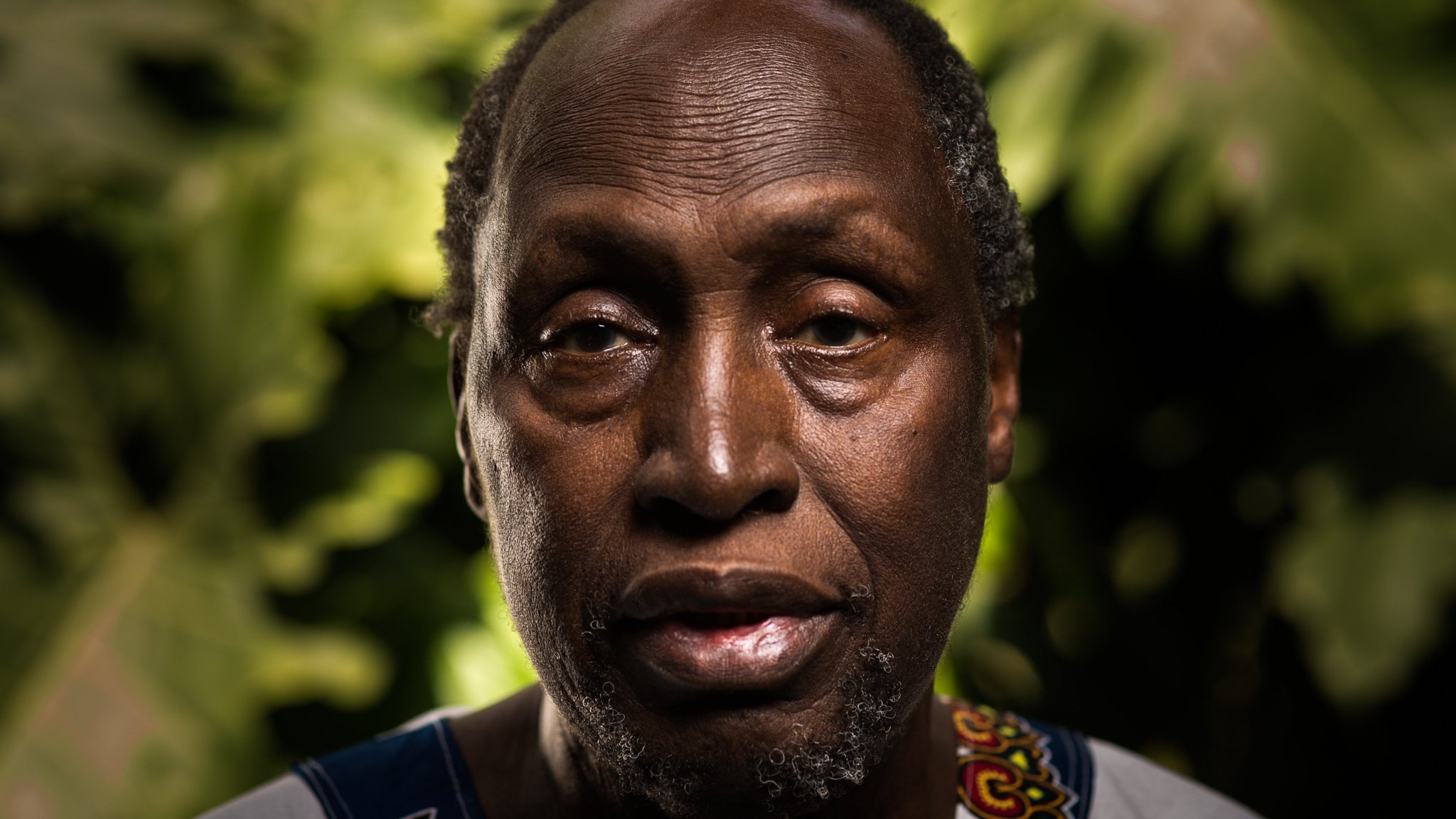
(For many more like this, see the Winter Oak quotes for the day blog)
If you like this bulletin please tell others about it. Subscribe by clicking the “follow” button.
—–
Back Issues
Follow Winter Oak on Twitter at @WinterOakPress